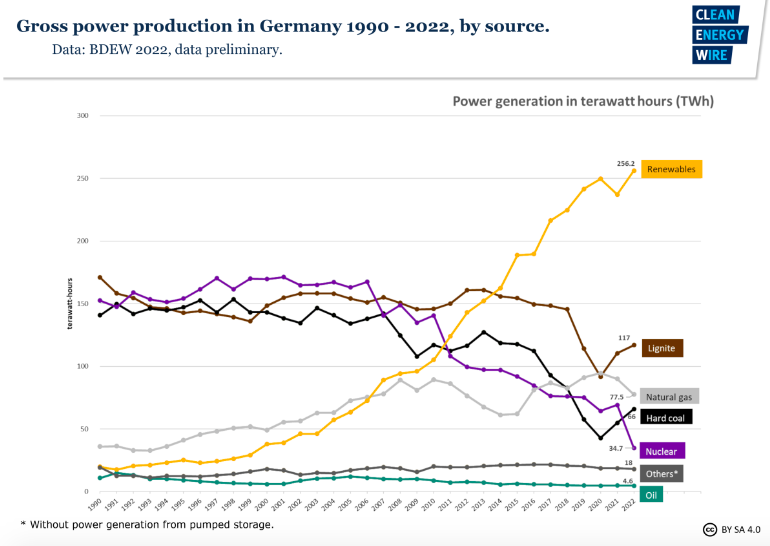11 Dec 2024

Tired Earth
By The Editorial Board

France’s two remaining coal-fired power stations, one in the centre-west (Cordemais) and one in the north-east (Saint-Avold) of the country, can be called to the grid in the event of high demand until the end of 2024, according to a decree penned by Prime Minister Elisabeth Borne, and Energy Transition Minister Agnès Pannier-Runacher on Thursday (24 August).
Ahead of last winter, France made a similar move when the government reopened the Saint-Avold plant in November 2022 to wean itself off Russian fuel and make up for the energy shortfall caused by its nuclear fleet not being fully operational.
For the coming winter, “we anticipate a lower level of tension,” said the Energy Transition Ministry, “but as a precaution, we are taking all the measures to ensure French electricity production”.
As a result, the two plants will be able to operate for longer than initially planned since the entire French fleet of four coal-fired plants was originally due to close before 2022, as promised in 2017 by French President Emmanuel Macron.
The Le Havre plant in north-west France closed its doors for good in 2021, while the Gardanne plant in south-east France was converted into a biomass power station in February 2022.
The Cordemais plant is due to suffer the same fate from 2026, while the Saint-Avold plant closed in March 2022 before being relaunched. Its final closure is, therefore, currently scheduled for the end of 2024.
Coal exit before 2030
Speaking on LCI on Friday morning (25 August), Pannier-Runacher pointed out that the two power plants at Saint-Avold and Cordemais account for just 0.6% of national electricity consumption, implying that they have little impact on the electricity grid.
But although the risk of a blackout is considered low for the moment, there is no question of taking the risk of “depriving the French people of electricity over the winter”, she explained.
In the interview, the Minister also reiterated France’s intention to phase out coal definitively by 2030 at the latest ‐ much earlier than Germany, which, will only exit coal in 2030 in an “ideal” case, according to the coalition agreement. At worst, in 2038.
Since it came to power in November 2021, the German government has reactivated several coal-fired power stations in a country where they provide more than a third of the electricity produced due to the effects of the energy crisis.
In fact, since the reduction in Russian gas imports and the end of nuclear power decided by Berlin on 15 April, coal has become the interim energy source for the transition to renewable energies.
A “bitter but inevitable” situation, Greenpeace Germany said in August last year. Since 2000, the country has largely reduced its dependence on coal in favour of renewable energies.

Source : euractiv.com
Comment